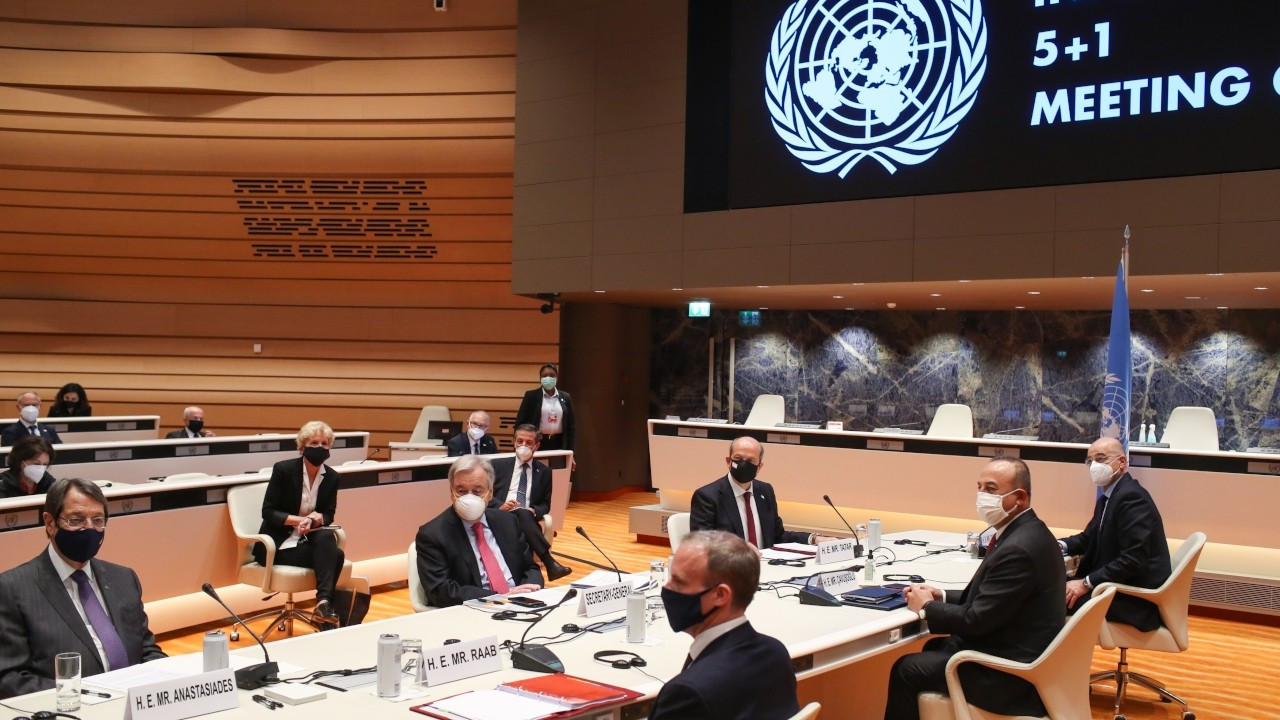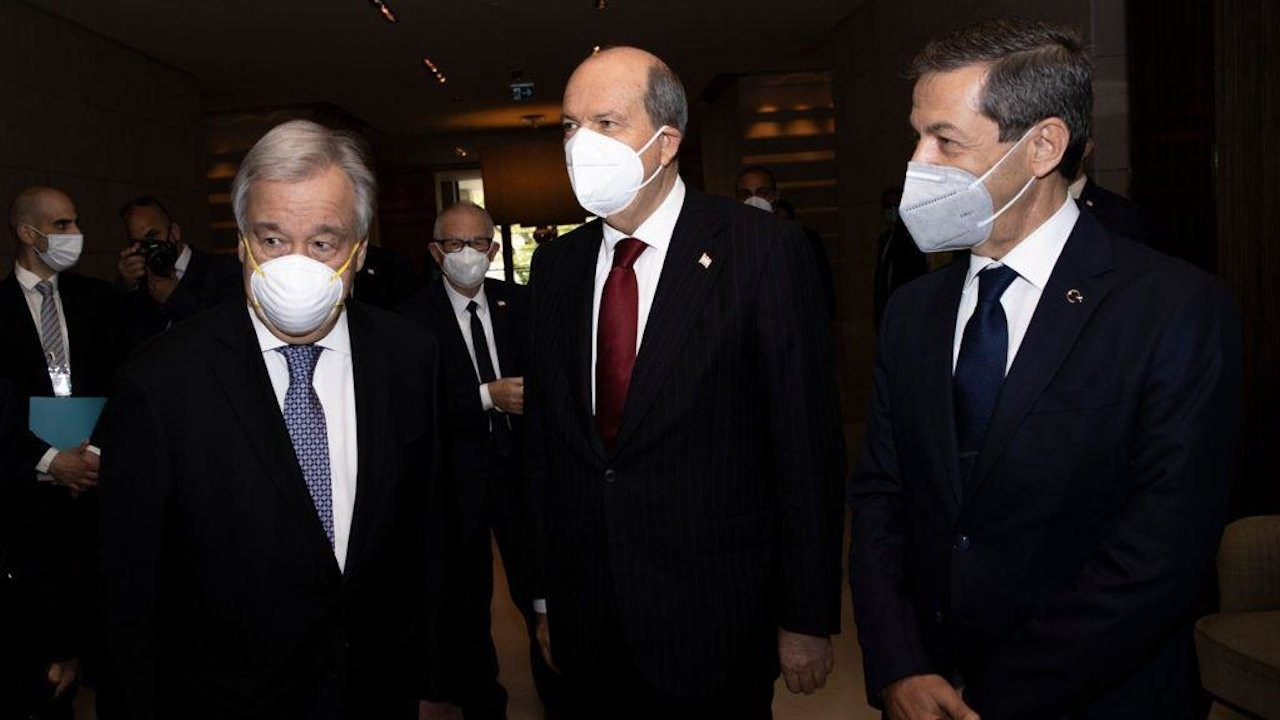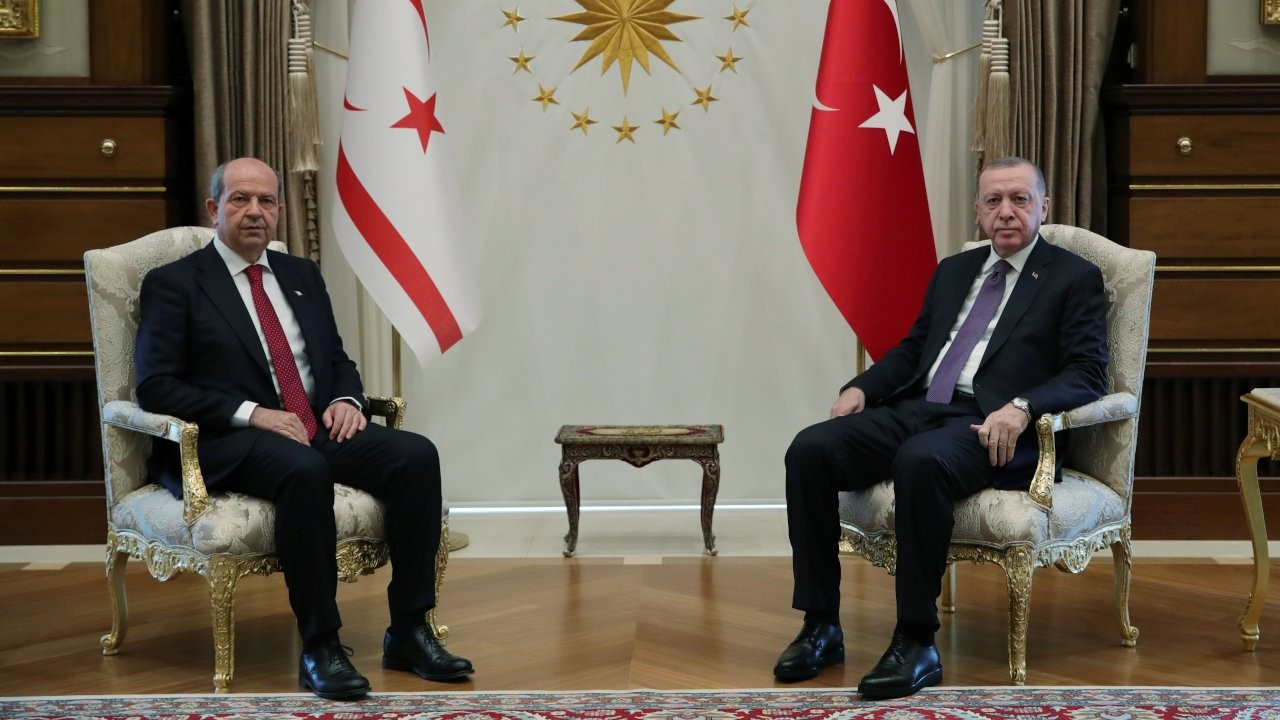Cyprus talks end with parties failing to reach common ground
The parties in the Cyprus talks have failed to reach common ground, with U.N. Secretary-General Antonio Guterres saying that the meeting "was not easy." "We have not yet found enough common ground to allow for the resumption of formal negotiations," he said. The Turkish side's insistence on a two-state solution for Cyprus has not found any support in the international arena.
Duvar English - Reuters
The United Nations failed on April 29 to bridge disagreements over restarting peace talks on ethnically-split Cyprus, with the rival sides standing their ground in a conflict that spans half a century.
Diplomats had been trying to break a jogjam in talks between rival Greek and Turkish Cypriots, which collapsed in acrimony in 2017. Cyprus's split is a constant source of tension between NATO allies Greece and Turkey, and has taken on sharper focus since the discovery of natural gas in the region.
"The truth is that at the end of our efforts, we have not yet found enough common ground to allow for the resumption of formal negotiations," U.N. Secretary-General Antonio Guterres told a news conference in Geneva after a three-day summit.
"As you can imagine, this was not an easy meeting," he said.
Cyprus was split in two in a Turkish invasion in 1974 triggered by a brief Greek-inspired coup. The seeds of division had been sown earlier, when a power-sharing administration of Greek and Turkish Cypriots crumbled amid violence, just three years after independence from Britain in 1960.
For decades, the United Nations has been attempting to piece Cyprus back together as a two-zone federation - the only thing the two sides had, until recently, been able to agree to in principle.
Two-state solution
Under a new leadership, Turkish Cypriots now say only a two-state solution can work.
"Nobody should expect us to be patched onto a unitary, single state. We are negotiating for a two-state solution," Turkish Cypriot President Ersin Tatar said. Only Turkey recognizes the breakaway state Tatar leads in Northern Cyprus.
A two-state deal would imply recognition of the Turkish Republic of Northern Cyprus (TRNC), something Greek Cypriots who nominally run the whole island say is out of the question.
Greek Cypriots say a federation-based deal is enshrined in U.N. Security Council resolutions.
Nicos Anastasiades, the Greek Cypriot leader who leads a government recognized internationally and within the European Union as representing the whole island, said Guterres had told the Turkish Cypriots he could not deviate from his U.N. mandate.
"He [Guterres] made it clear that he could not seek recourse, as was requested by the Turkish Cypriot and Turkish side, to the [United Nations] Security Council for a change to terms of reference," Anastasiades said, adding there was "not a single chance" of switching the basis of talks.
Anastasiades further said EU foreign policy chief Josep Borrell had also told the Turkish side that the bloc can't accept a two-state deal for Cyprus.
Greek Cypriot Foreign Minister Nikos Christodoulidis contacted Russian counterpart Sergei Lavrov and American Undersecretary of State for Political Affairs David Hale regarding the U.N.-brokered talks.
According to Greek Cypriot government spokesman Kyriakos Cousios, Lavrov and Hale reiterated their support for a solution to the Cyprus dispute based on the existing U.N. Security Council resolutions.
Christodoulidis also had a telephone conversation with French Foreign Minister Jean-Yves Le Drian, who similarly called on parties involved to resolve the Cyprus issue within the agreed framework of United Nations Security Council resolutions.
The talks were attended by the foreign ministers of Britain, Turkey and Greece, who are guarantor powers for Cyprus and still maintain intervention rights to restore any constitutional breakdown.
Turkish Foreign Minister Mevlüt Çavuşoğlu said the Greek Cypriot side had brought no new proposals to Geneva and had sounded "like a broken record."
Informal 5+UN meeting has concluded.
— Mevlüt Çavuşoğlu (@MevlutCavusoglu) April 29, 2021
-Fully supported #TRNC's vision for two-state solution based on sovereign equality.
-GCA&Greece did not bring a new vision&insisted on their outdated position.
-Will continue our determined stance to defend the rights of Turkish Cypriots. pic.twitter.com/xpfKtvX2lY
Guterres said the United Nations would make a fresh attempt in "probably two or three months."
"Unfortunately today we are not able to reach the agreements that we would wish to reach, but we are not going to give up," he said.

 Greek Cyprus dismisses Turkish Cyprus' offer for a two-state model at UN talksDiplomacy
Greek Cyprus dismisses Turkish Cyprus' offer for a two-state model at UN talksDiplomacy UN chief urges Turkish, Greek sides to be creative as Cyprus talks openDiplomacy
UN chief urges Turkish, Greek sides to be creative as Cyprus talks openDiplomacy Turkish Cyprus leader backs two-state proposal for UN talksDiplomacy
Turkish Cyprus leader backs two-state proposal for UN talksDiplomacy